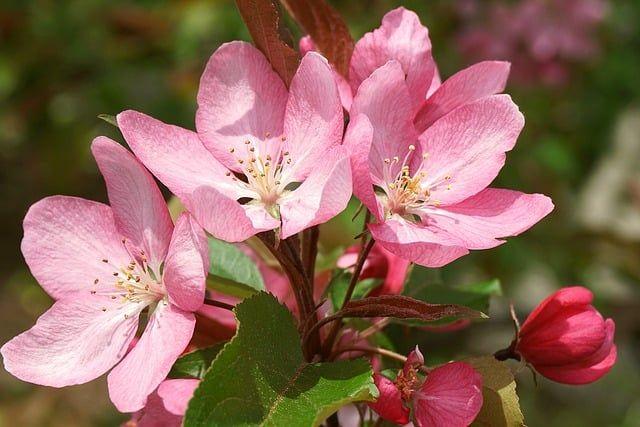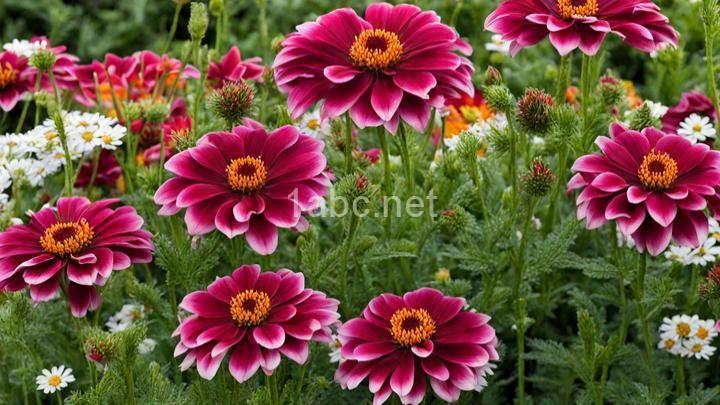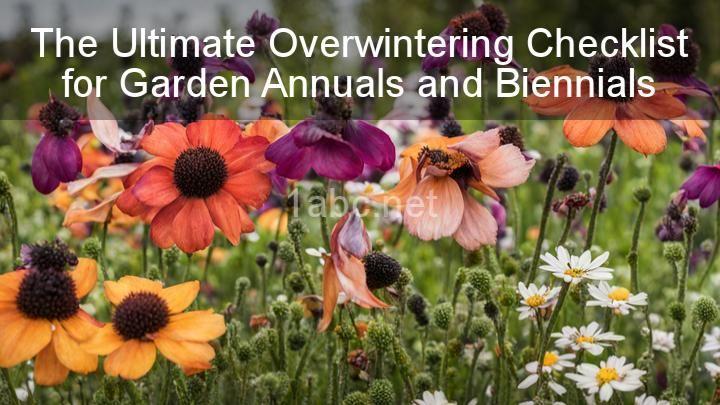The Ultimate Guide to Overwintering Garden Annuals

Introduction:
Welcome to our ultimate guide on overwintering garden annuals! In this blog post, we will provide you with all the information you need to successfully protect your favorite garden annuals during the winter months. Whether you're a beginner or an experienced gardener, we've got you covered!
I. Understanding Overwintering:
A. What is overwintering?
Overwintering refers to the process of protecting tender garden annuals from the harsh conditions of winter, allowing them to survive and thrive for another season. This is especially important in regions with cold temperatures and frost. By taking the necessary steps to overwinter your plants, you can ensure their longevity and enjoy their beauty year after year.
B. Benefits of overwintering:
There are several benefits to overwintering your garden annuals. Firstly, it is a cost-effective approach as you won't need to buy new plants every year. Secondly, it allows you to preserve the variety of plants you have grown and nurtured. Lastly, it can be emotionally rewarding to see your cherished plants survive and flourish, adding a sense of continuity and connection to your garden.
II. Choosing Which Annuals to Overwinter:
A. Assessing plant hardiness:
Before deciding which annuals to overwinter, it's important to assess their hardiness. Each plant has specific temperature and climate requirements, and not all annuals are suitable for overwintering. Determine your USDA hardiness zone and research the recommended hardiness for each plant in your garden. This will help you identify which plants are more likely to survive the winter in your area.
B. Selecting the right candidates:
When selecting which annuals to prioritize for overwintering, consider factors such as plant health, size, and sentimental value. Choose plants that are in good condition, without any signs of disease or pests. Additionally, consider the size of the plant and whether it can be easily accommodated indoors or in an outdoor storage option. Finally, if you have a sentimental attachment to certain plants, prioritize them for overwintering to preserve their beauty and memories.
III. Preparing Your Garden Annuals for Winter:
A. Cleaning and pruning:
Before winter sets in, it's important to clean up and prune your plants. Remove any dead or dying foliage, as well as any debris that may have accumulated around the plants. Prune back any overgrown branches to maintain a manageable size for indoor storage or outdoor protection.
B. Mulching and insulation techniques:
Mulching is a great way to protect your garden annuals during winter. Apply a layer of organic mulch, such as straw or wood chips, around the base of the plants. This will help insulate the roots and regulate soil temperature. Additionally, consider using covers or other insulating materials to protect plants from cold winds or heavy frost.
C. Potted plants versus in-ground planting:
When preparing your garden annuals for winter, it's important to consider whether they are potted or planted directly in the ground. Potted plants can be brought indoors for protection, while those planted in the ground may require additional insulation measures. Take into account the specific needs of each plant and plan accordingly.
IV. Cold Storage Options:
A. Indoor storage:
For potted plants, indoor storage is a viable option. Choose a cool, well-lit location for your plants, such as a basement or a room with large windows. Ensure the temperature remains consistent and doesn't fluctuate dramatically. Monitor the moisture levels and water the plants sparingly, as they will require less water during winter dormancy.
B. Outdoor storage alternatives:
If you have larger or less delicate plants, outdoor storage alternatives can be considered. Cold frames, unheated garages, or sheds can provide a protective environment. Ensure these structures are well-insulated and provide adequate ventilation to prevent excessive moisture buildup. Monitor temperature fluctuations and adjust insulation accordingly.
V. Monitoring and Care During Winter Months:
A. Watering and moisture control:
During winter, plants require less water as they enter a dormant state. However, it's important to monitor soil moisture levels and water sparingly when necessary. Overwatering can lead to root rot, while underwatering can cause stress and damage to the plants. Strike a balance by checking the moisture levels regularly and adjusting watering accordingly.
B. Pest and disease management:
Although pests and diseases are less common during winter, it's important to remain vigilant. Inspect your overwintered plants regularly for signs of pest infestation or disease. Treat any issues immediately to prevent them from spreading. Consider using natural pest control methods, such as neem oil or insecticidal soap, to protect your plants without harming beneficial insects.
C. Regular checks and maintenance:
Make it a habit to regularly check on your overwintered plants. Monitor for any changes in appearance, growth, or overall health. Inspect the insulation, covers, or mulch to ensure they are intact and providing adequate protection. By addressing any issues promptly, you can prevent potential problems from escalating.
VI. Transitioning Garden Annuals in Spring:
A. Gradually reintroducing sunlight:
As spring arrives, gradually reintroduce your overwintered plants to increasing amounts of sunlight. Start by placing them in a shaded area for a few hours a day, gradually increasing the exposure over a couple of weeks. This will help them acclimate to the stronger sunlight and prevent sunburn or shock.
B. Transplanting back into the garden:
When the risk of frost has passed and the weather is consistently warmer, it's time to transplant your overwintered plants back into the garden. Prepare the soil by adding organic matter and nutrients. Carefully remove the plants from their containers or storage areas, being mindful not to damage the roots. Place them in their designated spots and water thoroughly. Monitor their progress and provide any necessary support or staking as they continue to grow.
Conclusion:
Congratulations! You are now equipped with the ultimate guide to successfully overwintering your garden annuals. Remember, each plant is unique, so don't be discouraged if you encounter challenges along the way. With proper care and attention, your cherished annuals will thrive year after year! Happy gardening!
FREQUENTLY ASKED QUESTIONS
What is The Ultimate Guide to Overwintering Garden Annuals?
The Ultimate Guide to Overwintering Garden Annuals is a comprehensive resource that provides valuable information on how to successfully protect and care for annual plants during the winter months. It offers tips and techniques for ensuring the survival of your favorite annuals so that they can come back stronger and healthier in the following growing seasons. From understanding plant frost tolerance and selecting the right plants for overwintering to implementing proper watering and mulching strategies, this guide covers it all. Whether you are a seasoned gardener or a beginner looking to expand your gardening skills, The Ultimate Guide to Overwintering Garden Annuals is an invaluable tool to help you maintain a beautiful and thriving garden all year round.
How can this guide help me with overwintering my garden annuals?
This guide can provide you with valuable information and tips on how to properly overwinter your garden annuals. It may include details on the best practices for preparing your plants for winter, protecting them from freezing temperatures, and ensuring their survival until the next growing season. Additionally, the guide might offer advice on specific annuals and their particular overwintering requirements. By following the instructions provided in the guide, you can increase the chances of successfully overwintering your garden annuals and enjoying their vibrant beauty year after year.
What are garden annuals?
Garden annuals refer to a specific type of flowering or foliage plants that complete their life cycle in one growing season. These plants germinate from seeds, grow, flower, produce seeds, and then die all within one year. Some common examples of garden annuals include marigolds, petunias, zinnias, and impatiens. They are typically known for their vibrant colors and are often used to add seasonal beauty to gardens, flower beds, and containers.
Why is overwintering important for garden annuals?
Overwintering is important for garden annuals because it allows them to survive the cold winter months and continue their growth the following year. By protecting plants during the winter, you can help them stay healthy and ensure they have a higher chance of blooming again in the next growing season. This is particularly important for plants that are not frost-tolerant or those that require a longer growing season to reach their full potential. Providing proper care and protection during the winter months can help garden annuals thrive and contribute to a successful garden year after year.


